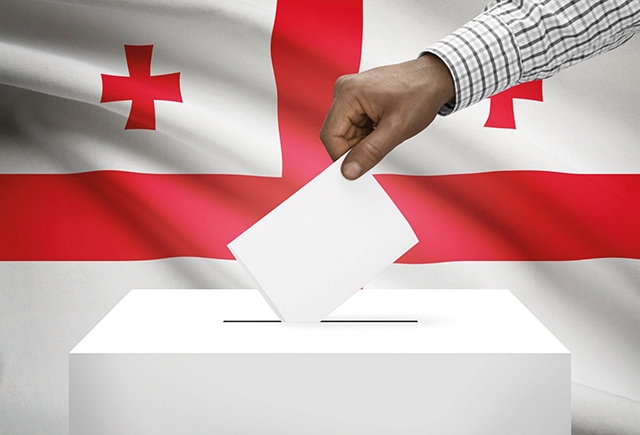Parliament 101: An Outsiders Guide to the Coming Elections
Even the most aloof visitor to Georgia can’t escape the mass of posters and billboards emblazoned with political candidates and party slogans. The politicking season is in full swing, and campaigning buzzwords are in the air. But for many observers, from the casual foreign backpacker intending on a long stay, to the young Georgian delving into the political world, the elections are far from a simple science. This is a look at the situation as it is, what stands to happen, and the implication on a broader scale.
As a unicameral parliamentary republic, Georgia will be conducting its tenth election cycle on the last day of October. Georgian Dream, the party with the majority of seats in the 150-seat parliament, stands to maintain its hold for a third term. This is something that hasn’t been done before in modern Georgian history. In response, many of the opposition parties have formed an alliance; yet another first, as generally parties stick to their own. In light of the overwhelming domination Georgian Dream has, some have banded together to try to take them on.
However, this election is unique for more than just the simple politics. It also comes with some new rules. Requirements for who can and cannot run for office have changed. Now, if a party vying for dominance can’t muster a minimum of 40% of the vote, it can’t form the necessary government body required. With this, it adds another layer of complexity to an already intricate system.
Another layer is the recent demonstrations and unsettlement with the standing government. 2019 saw widespread unrest that shifted a portion of the people’s outlook. This outlook is a serious concern for the ruling party as it has not put them in the best light. Despite this, the government and its handling of the coronavirus pandemic has left the people more satisfied. The response and containment of the pandemic and those affected has even drawn the praise of several western European leaders.
Then there’s the Saakashvili factor. The opposing coalition of parties have pushed the former president into their pick for prime minister. Since he’s been in exile in Ukraine, holding various offices there, he’s repeatedly vowed to return to Georgia. However, this comes with its own price. He’s been placed on a blacklist and faces arrest if he returns. Despite this, his promised homecoming is steeped in controversy and stirs a mix of emotions among the populace. The ruling party has used this as ammunition against the opposition, as the former president no longer holds Georgian citizenship. As a result, he’s not legally allowed to run for or hold elected office, or even a government job.
In light of all this it may seem like a concentrated effort by the opposition to be united against the ruling party. However, the opposition coalition could be less allied than it seems. Aside from the varied emotions regarding the prime minister’s post, many simply won’t accept the Saakashvili idea. Plans for the reformation of the economic, judicial, and foreign policy strategies also split the opposition parties. It’s one thing to win an election, but another to actually begin implementing the plans you ran on. This is amplified in such a varied parliamentary community such as Georgia’s.
The government has promised that the pandemic won’t affect the elections, but it’s difficult to see this being the case. Since multiple facets of daily life have already changed due to the virus, the idea of a large crowd gathering at polling places could act as a deterrent to the people. On the other hand, the government, as well as foreign officials, have made it abundantly clear that safety be an important component of the elections. To support this, special police units have been organized.
Once the ballots are counted, the next piece of the puzzle is the popular response. The visibility from the EU will give the people a large stage to act on should there be disagreement with the fairness of the results. Even US Ambassador to Georgia, Kelly Degnan, has spoken up regarding the election and the procedures surrounding it, demanding that it be carried out fairly and in a free environment.
As Georgia continues its transfer to a fully proportional electoral system in 2024 for its parliament, eyes will be on the major players of Georgian Dream, as well as the opposition parties. Additionally, it will become increasingly interesting with regards to the EU and Russian relations. As with almost all modern elections, there are already whispers going round about the potential for unlawful foreign influence and backroom deals between the parties and their constituencies. Undoubtably, the aftermath of the elections will be an eventful time, but as it should be with any democratic nation, the people have the final say. As for an outsider’s perspective, regardless of which way the election goes, it will surely make Georgia even more of an interesting place to be.
By Michael Godwin
Image source: vestnikkavkaza.net












